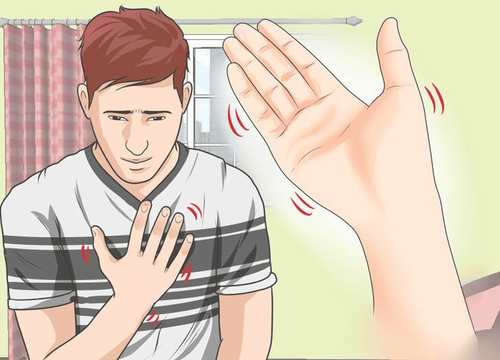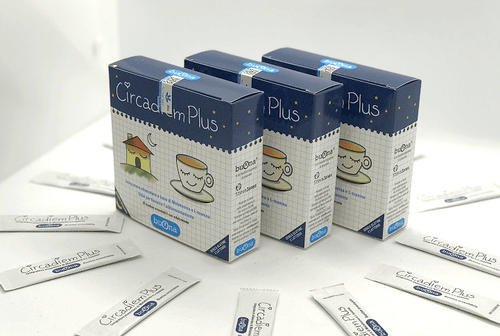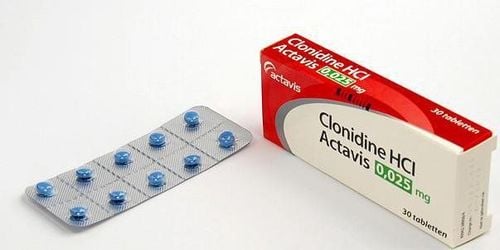This is an automatically translated article.
When faced with stress, some people have good resilience, some quickly give up. Scientists have found an explanation for this.
1. What is stress?
Stress is the body's natural defense against danger. When stressed, the body produces hormones to prepare for danger. When people face threats, the body releases cortisol, epinephrine, and norepinephrine, triggering physical responses such as increased blood pressure, sweating, increased muscle strength, and stimulation of alertness. for people to deal with some dangerous situations. At the same time, Norepinephrine and epinephrine also make the heart rate faster.
Environmental factors that trigger the above response are known as stressors, these are: Noise, violent behavior, a speeding car, a scary moment in the movie or date First date,... Feelings of stress increase in proportion to the number of stressors. Also according to a 2018 American Psychological Association (APA) survey, the most common stressors were work and money.
According to the National Institute of Mental Health (NIMH), there are two types of stress: acute and chronic.
Acute stress: A short-term, fairly common, form that occurs when people are under pressure from recent events or face difficulties in the near future. Effects of acute stress include headache, stomach upset, and mild anxiety. However, repeated acute stress over a long period of time can lead to chronic stress; Chronic stress : A form that develops over a long period of time. The causes of a person's long-term stress can be due to economic difficulties, an unhappy marriage, traumatic experiences in the first years of life,... Chronic stress can cause systemic diseases. Cardiovascular, respiratory, immune, reproductive, mental health...
2. Why do some people give up in the face of stress?
When dealing with stress, why do some people cope well, others give up early? Here's why: For some people, stress is what motivates them to focus, work harder, and endure difficult situations until the stress is gone. For others, stress causes exhaustion, anxiety, and depression.

Một số người bỏ cuộc khi đối mặt với căng thẳng
2.1 Human studies
A team of scientists at the Cold Spring Harbor laboratory have pinpointed an area of the brain that seems to control an individual's ability to cope with stress. It's called: The medial prefrontal cortex (mPFC) and it's been previously implicated in depression. This area is part of the default brain region responsible for self-perception and introspection.
Professor Bo Li, a member of the research team, said: Brain scans of depressed people show a significant increase in mPFC activity. This area is essential for dealing with stress. Its function is implicated in a variety of mood disorders. If the mPFC is increased in activity, it increases the symptoms of depression (the tendency to indulge in negative thinking, inability to enjoy reality).
2.2 Research on rats
In the study on mice, the team of scientists did the following: They put the mice in a box, subjected to random electric shocks for 1 hour. The mice knew there was nothing they could do to make the pain stop.
Then the researchers tested how these mice responded to stress. They put the mice in a box, half of which was lined with electrical grids. They then flashed lights to signal to the rats that they were about to discharge electricity into the grid. If the mice ran to the other half of the box when they saw the light, or quickly ran away when they received an electric shock, they were considered resilient. Despite their stress, they still act to avoid further injury.
Resilience is the ability to return to a normal state of mind immediately after a difficult situation. In the group of mice, most of the animals were able to avoid shocks because of their resilience. However, about 20% also endure the shock passively. This is a helpless behavior that is quite similar to those seen in people with depression - the inability to take action to avoid or cope with difficult situations.
Researchers examined the brains of mice and found: their mPFC was more active if they were "depressed" and less active if they were resilient to stress.
2.3 Ability to cope with stress influenced by mPFC
When the brain area is active by default, it will reduce the activity in the opposite brain area (which is responsible for interacting and enjoying the outside world). Normally, switching between the two brain regions would allow people to both look inside and pay attention to the outside life. But when the neurons in the mPFC become more active, promoting introspection, symptoms of depression manifest.
This study will add to the knowledge scientists have of targeting mPFC to treat depression.

Thư giãn để điều trị giảm căng thẳng
3. How to deal with stress?
There are several treatments for stress relief:
Medication: Doctors usually do not prescribe medication to deal with stress, unless the patient is being treated for another medical condition such as depression or an anxiety disorder. . In that case, the doctor may prescribe an antidepressant medication. There is, however, a risk that the drug will only mask the stress and not deal with it. At the same time, the drug can have side effects such as decreased sex drive; Relaxation: Aromatherapy, meditation, yoga and reflexology; Exercise: Exercise reduces memory loss in people under stress; Reduce the use of stimulants: Like alcohol, coffee,...; Change in nutrition: A healthy, balanced diet with a variety of fruits and vegetables will help improve the immune system, enhance the health of patients under stress; Chat: Sharing feelings with friends and relatives will help you reduce stress and anxiety. The people around you can suggest solutions to help reduce stress for you. The reason why some people give up in the face of stress, while others persevere in the face of it, is due to complex neural mechanisms. With the advent of new techniques, scientists hope to have better treatments for depression.
Follow Vinmec International General Hospital website to get more health, nutrition and beauty information to protect the health of yourself and your loved ones in your family.
Please dial HOTLINE for more information or register for an appointment HERE. Download MyVinmec app to make appointments faster and to manage your bookings easily.













